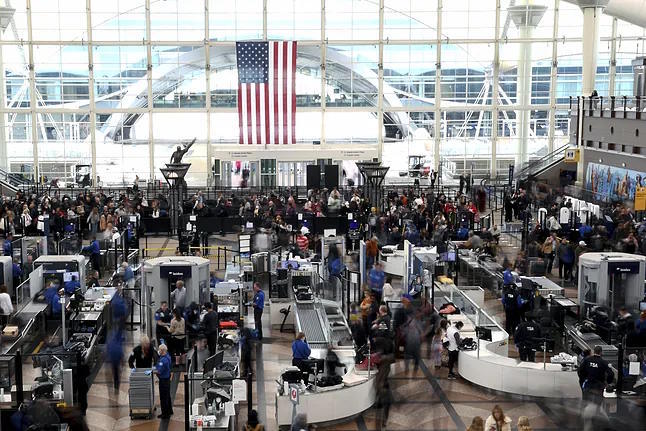Neither dengue, nor West Nile fever, nor chikungunya... Instead of focusing on infections usually associated with other regions, it's more important to focus on well-known ones like measles. The outbreak affecting the U.S. with over 1,300 confirmed cases in more than 40 states, as reported by the Centers for Disease Control and Prevention, and its neighbor to the north, Canada, with over 3,800 infections "is a warning sign for prevention," states the spokesperson of the Spanish Society of Infectious Diseases and Clinical Microbiology (SEIMC), María del Mar Tomás.
Globally, there has been a significant increase from a historic low of 132,490 cases in 2016 to a surge with 869,770 cases in 2019 and over 10 million in 2023, according to the World Health Organization (WHO) estimates. The lack of vaccination, whether due to refusal or access issues, is one of the reasons for this turning point in a new epidemic threat.
"In the U.S., over 90% of cases have occurred in unvaccinated individuals," emphasizes Tomás. "We need to know if we are vaccinated or not because the global circulation of the virus, which is clearly increasing, can lead to one getting infected as well."
Alongside traditional travel-related diseases, attention must be paid to the rise of measles, "which knows no borders", stresses Tomás. In the outbreaks across the Atlantic, 92% and 86% of cases (U.S. and Canada, respectively) are due to lack of vaccination protection. "It is clear that one can experience the infection mildly, but the vaccine provides immunity and interrupts transmission," explains the microbiologist and coordinator of the Translational Microbiology group at Inibic, A Coruña Hospital.
A recent article published in The New England Journal of Medicine emphasizes two aspects: detection and vaccination. "In the context of increasing international travel, rapid identification of measles cases and genotyping of the measles virus are essential for early outbreak detection, tracking transmission chains, and effective control."
The publication also recalls that the U.S. achieved the status of measles-free country in 2000 (Spain in 2016), but the current situation of high virus circulation levels could jeopardize this. In fact, since 2019, no WHO region has achieved and maintained measles elimination.
One of the challenges, beyond the access issues faced by less developed countries, is vaccination hesitancy spreading even in countries with access. In 2019, the WHO identified this obstacle as one of the top ten global health challenges. The U.S. serves as an example: a health secretary, Robert F. Kennedy Jr., who has declared anti-vaccine views and raised doubts about the benefits of immunization amidst the measles outbreak.
The situation in Europe: varying vaccination coverage
Therefore, Europe looks cautiously at the U.S.. "We must be aware that many people are currently traveling. As a country that receives millions of tourists, doctors must consider measles in their differential diagnoses," acknowledges Tomás.
In Europe, vaccination coverage rates vary, creating gaps that the virus can exploit. Spain and Norway have vaccination coverage levels that prevent virus circulation, i.e., above 95% for both doses, "which provides societal protection. However, even in environments where this rate is achieved, there is still a risk of transmission," explains the microbiologist.
The European Centre for Disease Prevention and Control (ECDC) reports a clear increase in recent years. In 2024, a total of 35,212 measles cases were reported throughout the EU, a significant increase (tenfold) from the 3,973 cases reported in 2023.
According to the latest available ECDC report this year, the countries with the highest number of cases are Romania (13,340), France (841), Italy (827), Belgium (589), and the Netherlands (553). Only Iceland and Liechtenstein have not reported any cases in the last 12 months. The document emphasizes the need to "increase clinical awareness among healthcare professionals, reminding them of the importance of verifying individuals' vaccination status, especially before travel."
